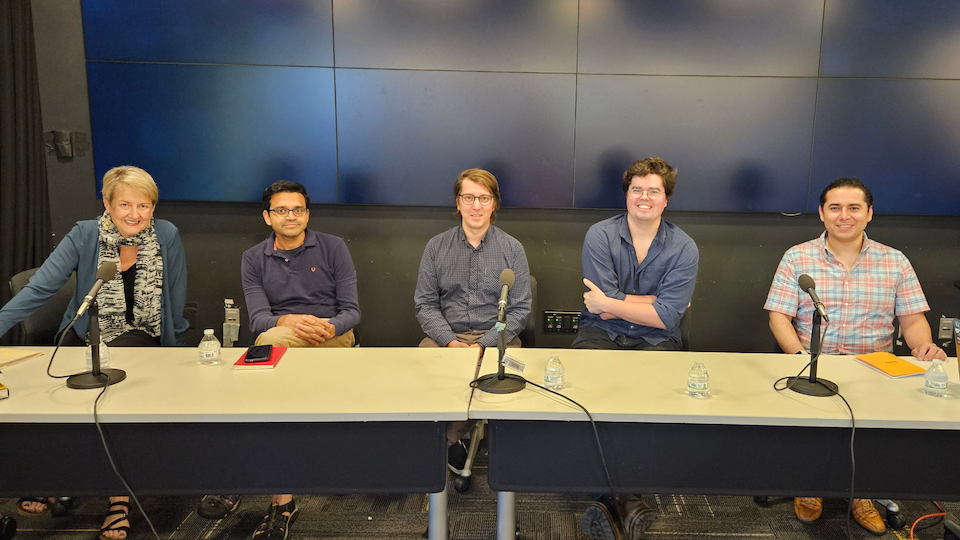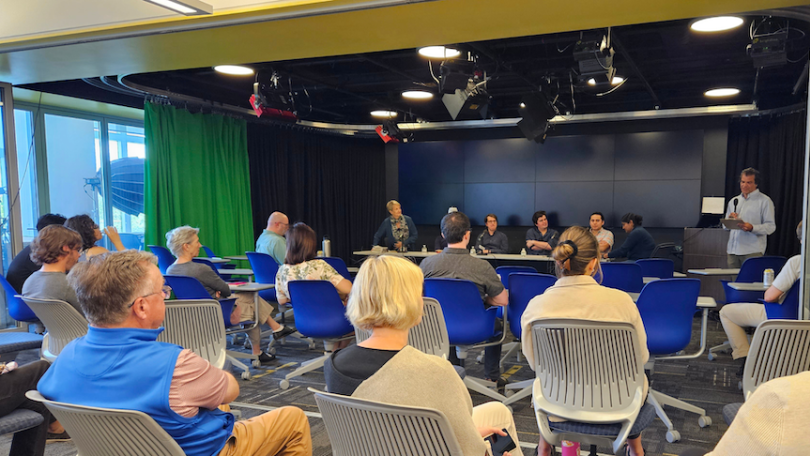What results when you bring together esteemed Dartmouth faculty, a Ph.D. student, and staff to discuss algorithmic bias?
Just as many questions answered as questions posed!

Pictured from left: Susan Brison, the Eunice and Julian Cohen Professor for the Study of Ethics and Human Values, Department of Computer Science faculty member Deeparnab Chakrabarty, Simon Stone, a Dartmouth Library Research Data Science Specialist, Engineering graduate student, Chase Yakaboski, and Luis Alvarez Leon, Assistant Professor in the Department of Geography
Bias in Algorithms Event: reflections on a crucial topic
Questions like, who or what is the root cause of unfair or disadvantaged results? How do we mitigate the risks? Do we want to? Who holds the greatest responsibility: designers, programmers, business executives, politicians, or everyday people? Who benefits from the design of these technologies and the algorithms that feed them?
The Bias in Algorithms session revealed that no individual actor creates algorithmic bias. Instead, it's an entire ecosystem: machines, people, data, markets, and institutions, a perspective shared by panelist Luis Alvarez Leon, Assistant Professor in the Department of Geography.
He provocated by saying, "Information asymmetry reinforces power asymmetry. Systemic distortions - the conditions from which the algorithms emerge - create those biases and can't be isolated to a single source. It really is an entire assemblage," and "rather than challenging or overcoming [those systemic issues], tech 'fixes' reinforce the status quo."
"Humans are good at heuristics and reasoning, but that can be detrimental in a societal context. The data inputted into the [algorithmic] models reflect individual thinking." - Chase Yakaboski
